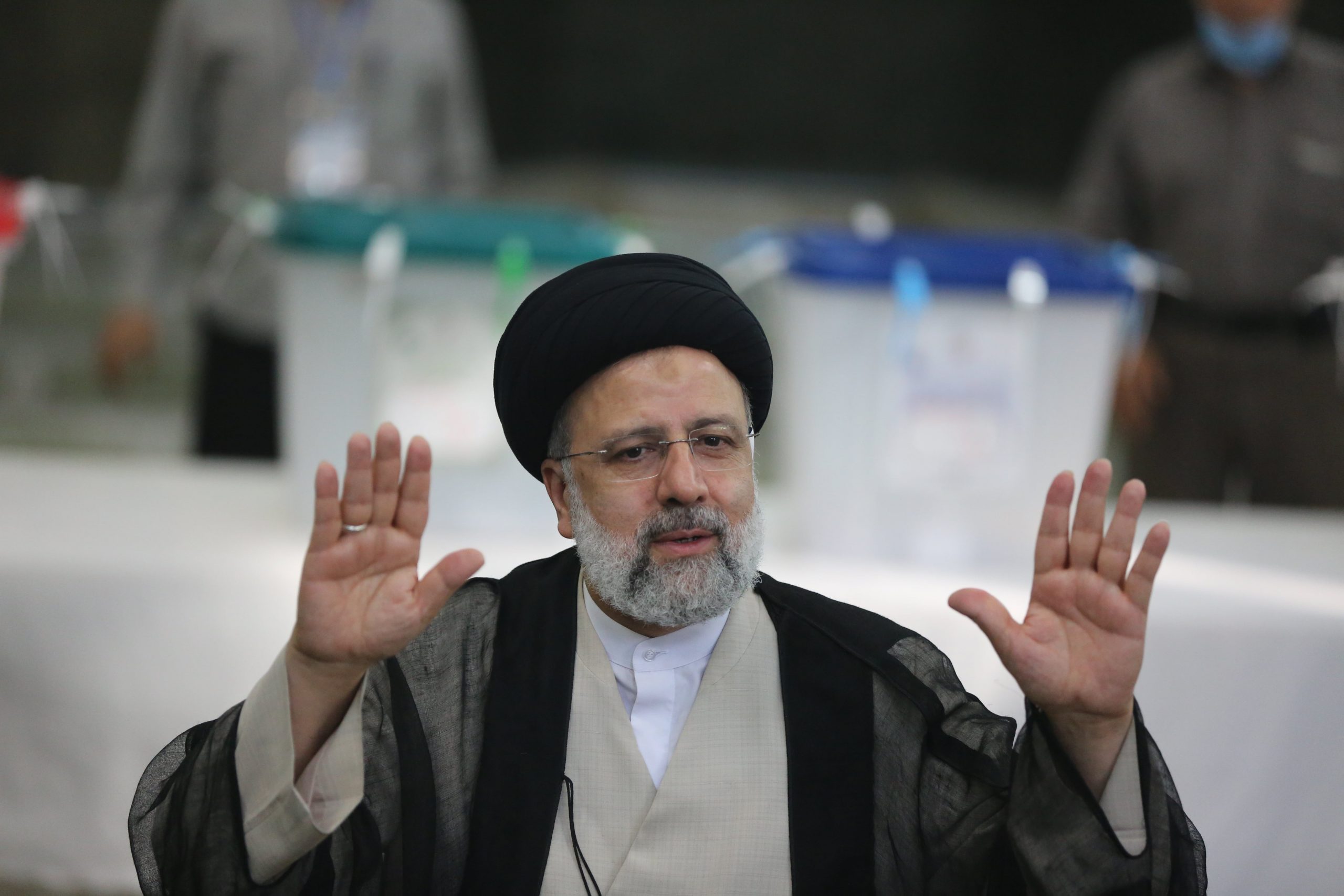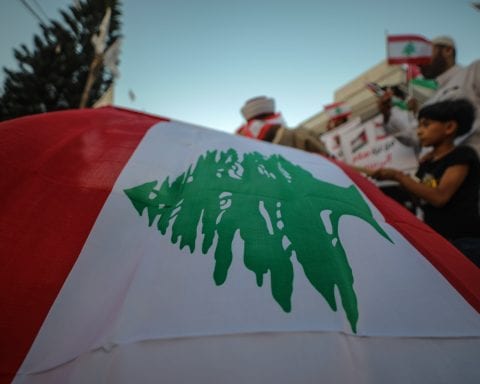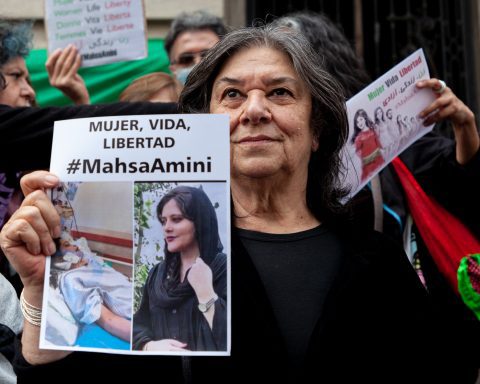Ebrahim Raisi, a hardline judiciary chief known for his close ties with the Supreme Leader, became the 8th president of the Islamic Republic of Iran according to initial results. The statement was made Saturday afternoon by the head of Iran’s Election Office, Jamal Orfi.
In his televised speech, Orfi stated that over 90% percent of the 28.6 million ballots, representing a turnout of 48%, were counted, of which Raisi won 17.9 million. For the June 18 election, the Interior Ministry indicated that over 59 million eligible voters, including 1.3 million who would go to the ballot for the first time.
Orfi added that former Revolutionary Guards commander Mohsen Rezaei came in second place by winning 3.3 million votes, while the only moderate candidate, former chief of Iran’s Central Bank Abdolnaser Hemmati, was only able to take 2.4 million votes.
The most striking outcome of the election was the fact that around 5 million invalid votes had been cast in the elections, which can be considered as Iranian people’s anger arose from the disqualification of several key moderate and conservative candidates by the Guardian Council, the top vetting body of the country.
Rivals of Raisi delivered their messages congratulating him while waiting for the announcement of the results early on Saturday. The moderate candidate Hemmati presented his congratulations through a letter, written, “I hope your administration, under the leadership of Supreme Leader Ayatollah Ali Khamenei, will make the Islamic Republic proud, improve livelihood and ensure the nation’s well-being and welfare.”
Ghazizadeh, who ranked 4th place in the elections, congratulated Raisi, saying, “While supporting the votes of people, I congratulate Hazrat Ayatollah Seyyed Ebrahim Raisi as the people’s elected president.”
The outgoing President Hassan Rouhani met with president-elect Ebrahim Raisi to congratulate him in his office on Saturday, the official Iranian media reported. Furthermore, regional leaders including Turkish President Recep Tayyip Erdoğan, Russian President Vladimir Putin, and Iraqi President Barham Salih were among the first to congratulate the new Iranian President.
Voter apathy
Despite all callings urging Iranian people to participate in high numbers in the election, made by the country’s elite, including Supreme Leader Ayatollah Ali Khamenei, hoping to ensure the legitimization of the elections, the turnout remained low. Iran’s 13th presidential election recorded a low turnout, around 48%, the lowest, compared to previous polls.
This situation was derived mainly because of the Guardian Council’s disqualifications of several key moderate and conservative hopefuls. Upon the disqualifications, some key pro-reformists, including lawmakers and activists, called on people to boycott the elections on the ground that there is no candidate who could represent them.
Economic challenges that the country has been going through and pressures on freedoms can be counted as other significant factors that led to Iranians refusing to go to the ballot boxes.
Controversial election
Iran’s presidential election has also drawn attention due to developments in the registration process as well as the election campaign period. Only a few days before the starting of the registration process, the Guardian Council announced a new set of criteria for candidates who would like to run in polls.
According to these new criteria, the candidates must be between 40 and 75 years of age, must hold a master’s degree or its equivalent, must have at least a 4-year experience of management in state organizations, or should have served as a minister, or governor of cities with two-plus million population, or should have been a top commander of the armed forces with the rank of major general or higher. It also stipulates that the candidates should not have any criminal record or jail history. These changes have been evaluated as attempts to prevent some key reformist and conservative candidates.
President Rouhani had opposed the new guidelines announced by the Council, and directed the Interior Ministry to dismiss the guidelines, saying it is against the country’s law.
Besides, another disturbance occurred among the Iranian people when the Guardian Council announced the list of approved candidates. Given the list, it was seen that several key reformist and conservative candidates were disqualified. The first deputy of President Rouhani, Ishaq Jahangari, former President Mahmoud Ahmedinejad, former Parliament Speaker Ali Larijani, and former IRGC commander Saeed Mohammed were heavyweight nominees who had been excluded by the Council.
Moreover, three candidates dropped out of the race on the last day of the campaign. Last Wednesday, first, moderate Mohsen Mehralizadeh and then former nuclear negotiator Saeed Jalili and hardline lawmaker Alireza Zakani quit from the running. While Mehralizadeh’s withdrawal was expected to support Hemmati, the other two candidates’ resignation likely consolidated the hardline vote behind Raisi.
All these developments led to speculations that the elections had been designed in a way to ensure the victory of Raisi. This is also a factor that caused boycott calls, as well.
Washington also made a comment on the Iranian election. The US State Department spokesperson stated that “Iranians were denied their right to choose their own leaders in a free and fair electoral process,” referring to the disqualification of candidates.
Who is Iran’s next president, Raisi?
The 60-year-old hardline cleric is known to be close to the Supreme Leader Ayatollah Ali Khamenei. Serving as the country’s top judge, Raisi has ultra-conservative political views. While he was a student, he actively took part in protests against the Western-backed Shah.
After the Islamic Revolution, he joined the judiciary and served as a prosecutor in several cities. Raisi became the deputy prosecutor in Tehran when he was only 25. He was appointed as prosecutor general in 2014. He also stood for the presidency in the 2017 election against the outgoing president Hassan Rouhani. In the 2017 election, he ranked at second place with a 38% voting rate. By 2019, Ayatollah Khamenei named him to the position of head of the judiciary.
Ebrahim Raisi has been targeted by the harsh criticisms of many Iranians and human rights activists due to his role in the mass execution of political prisoners in the 1980s. While he was serving as the deputy prosecutor, he took a seat in secret tribunals, which decided on the execution of many political prisoners in 1988. The commission was later known as the “Death Commission.”
Upon his election as Iran’s new president, Amnesty International reiterated its call demanding an investigation of Raisi for his alleged crimes against humanity and a “spiraling crackdown” on human rights. Raisi is also under US sanctions for his alleged involvement in the aforementioned crimes.
Ebrahim Raisi is accepted by many analysts as the most leading candidate who would succeed Supreme Leader Khamenei.
As Iran’s new president, Raisi will take office in August.














